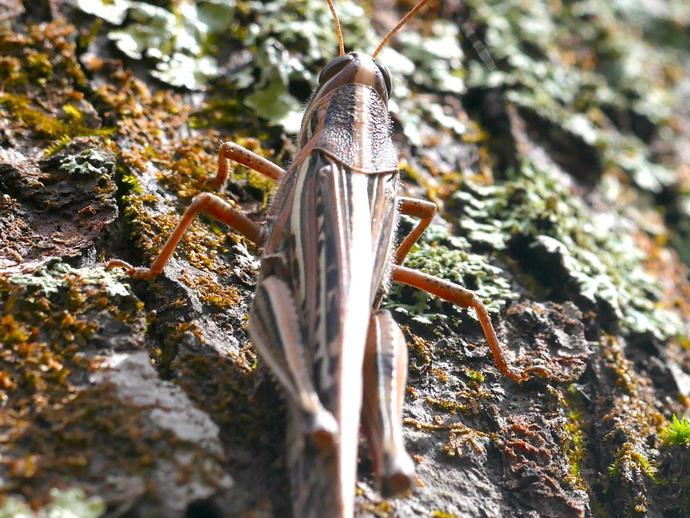April 20, 2021
It's time for today's edition of #BenInNature presented by our friends at Carter Bank & Trust!
The American bird grasshopper (Schistocerca americana) is the largest grasshopper species in North America! The females of the species can reach a length of 5.5 centimeters, while the males top out at around 4.5 centimeters. You can find these grasshoppers in the eastern U.S., Mexico, and the Bahamas.
I spotted this grasshopper almost a month ago, and you're not going to find another grasshopper close to this size in early spring in Virginia. The reason is that unlike many grasshoppers, this species overwinters as an adult rather than in the egg!
These grasshoppers have two generations per year, and the female lays 60-80 eggs in the soil at a time. After 3-4 weeks, the eggs hatch and the nymph grasshoppers dig their way to the surface. Once there, they tend to remain in a group for a while, feeding together on a wide variety of plants. Unfortunately for us humans, they love a large number of agricultural crops, including corn, oats, cotton, peanuts, tobacco, and plenty of others. They aren't a huge pest in most parts of the country, although they're considered a severe pest in Florida. Under the right conditions, the Florida populations can occasionally explode, and a big enough swarm can defoliate citrus trees!
ABOUT #BenInNature
Social distancing can be difficult, but it presents a great opportunity to become reacquainted with nature. In this series of posts, Administrator of Science Ben Williams ventures outdoors to record a snapshot of the unique sights that can be found in the natural world. New updates are posted Monday - Friday, with previous posts highlighted on the weekends. This series of posts is made possible thanks to the support of VMNH Corporate Partner Carter Bank & Trust (www.cbtcares.com).
NATURE PHOTO IDENTIFICATIONS
If you discover something in nature that you would like help identifying, be sure to message us right here on Facebook with a picture (please include location and date of picture) and we'll have our experts help you identify it!

 Hours & Admissions
Hours & Admissions Directions
Directions

